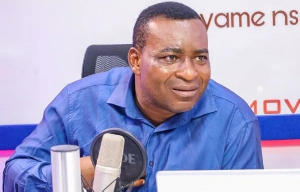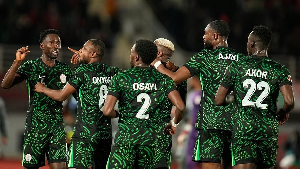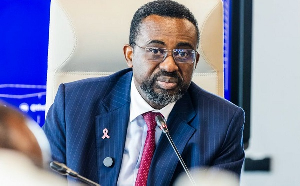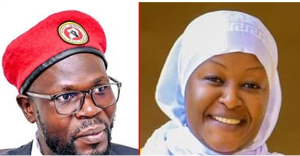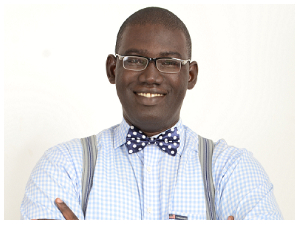By Kwesi Atta Sakyi 23rd August 2012
I throway salute to Kofi Amenyo, my colleague at the University of Ghana, Legon, of the 1978 graduating class or cohort of Economics undergraduates. I dedicate this write up to the blessed memory of my bosom friend who passed away in a tragic accident some years back whilst he was a tutor at Mfantsipim Senior High School. He was called Sampson Ebo Quarm and he majored in Political Science and minored in Sociology and Ancient History. He was at Sarbah Hall Annex (Oponglo), and I was at Legon Main Hall. We used to teach together at Winneba Methodist Middle Boys School, before we all got admission to Legon in October 1975. Even though he was from Gomoa Potsin, he plied his teaching trade at Winneba. He was such a genius and a gentle soul. MHSRIP.
As you may be aware from Parts 1 and 2 of these series, I travelled to Ghana from Zambia, to spend 5 weeks with my family, from 5th July to 10th August, 2012 and this is the last and final installment in the write up series about my impressions and recollections whilst there. I am sorry that I dwelt so much on Winneba in Part 2. Part 3 is a general view of Ghana as I experienced it. I thought the Apampam Store (itinerant hawkers) is extinct in Ghana. I was shocked when one day, one tall and handsome light-skinned gentleman in his thirties suddenly appeared near my house, and enquired whether my wife was in.
He was carrying on his head brand new ladies undies, brassiere, perfumes, creams and an assortment of goods. He looked friendly yet it was a bit scary to find a stranger enquiring after your better half. At another time, while taking a stroll, I encountered three young adults carrying many wares on their heads and I could immediately tell they were of foreign extraction, either from Niger or Mali or from any of the Sahelian regions. They could be offspring of Fulani herdsmen who have metamorphosed into traders, in order to integrate into the Ghanaian society. I was pleased for them that at least, they were gainfully self employed. At the toll gate on entry to Accra from Cape Coast, you will come across many young Ghanaian boys and girls, including adult women, hawking seriously in the heavy traffic, selling snacks, cut sugar cane, peeled pawpaws, ice cream, butter bread, takeaway rice, iced water in plastic satchets, among others.
If you reckon with the vehicular accident risks they run, plus the scorching sun and the running up and down, chasing speeding passenger buses, then you come to the grim realisation that life is really hard for some Ghanaians. Ebi nte yie koraa. Haba! Where is the Better Ghana Agenda? Well, it is not granted that the government can solve all the myriad problems of Ghanaians. However, we suggest that interventions should be put in place to reduce poverty levels and to reduce child labour. That is what we find in advanced economies. Some of those vendors and hawkers should have been in the classroom studying. However, if you consider the high failure rate in the BECE and WASSCE examinations, then you realise we have a big problem on our hands to solve. I think we need to devise schemes which will re-direct some of these millions of school dropouts who, to eke a living, are forced to work and live on the streets. What better option to equip them with skills or let them take to farming.
I call upon government agencies, NGOS and private business enterprises to rise to the occasion by offering a ray of hope to these our young school dropouts. I know that critics such as Paa Kwesi Mintah will chide me on this one. Is it not John Locke and Jean Jacque Rousseau who posited that every human being is entitled to some inalienable natural rights such as right to life, property, liberty, freedom from want, among others? Is it not stated that there is an unwritten contract or compact between the governed and the governors that the government has the duty and obligation to use the collective mandate given them in the pursuit of happiness, prosperity, protection and the public interest?
There are of course differing schools of thought on the way the national wealth should be produced and distributed, with ideologies such as the welfare state, free market capitalists, socialists and communists. We in Africa need to go back to our traditional roots of sharing in the community and being caring. Perhaps, we need to revisit the communes and collectivization ideas of the Kibbutz of post-independence Israel, and Ujamaa of late Dr Julius Nyerere of Tanzania. Though many think Nyerere’s Ujamaa was an abysmal failure, yet he achieved national unity and consciousness by his homegrown precepts. Or better still, let us consider Mahatma Mohandas Gandhi ( Ghandiji) for his visionary self reliance ideology for India.
Why cannot we also restructure the overloaded school syllabi? Some of the teachers slack in their teaching, and some private school proprietors have congested class sizes as they care only about their profits or the bottom line. Why cannot the Inspectorate Division of the Ministry of Education intervene to put a statutory ceiling on class sizes? My niece attends a private JHS school where she says they are about 70 in one class. Are we after quality or quantity? How can teachers give personal attention to the needs of kids in such large classes? How can they cope with marking so many exercises given in class? Is this not a recipe for mass failure and churning out dropouts?
Our educational system leaves much to be desired. I am told on reliable authority that some of the best systems of education in the world are found in countries such as Netherlands, Sweden, Finland, Canada, South Korea, Germany, Switzerland and Britain. Why cannot our planners and policy makers borrow a leaf from best practice around the world? I call for a serious rethink of our current secondary school curriculum which has long become moribund and is overtaken by events. Right now in the USA, NASA has launched the Curiosity Rover to the Planet Mars, to explore it. Two Ghanaian Scientists, Dr Ave Kludze and Dr Tsebi Ollennu were part of the team which assembled the craft.
These two had their secondary education in Ghana under the old pre-SSS/SHS system, and went to further their undergraduate and graduate studies in the USA and UK respectively. Our current apartheid and elitist educational system is fit only for the well-heeled or well-off, who can afford to pay for their kids to learn in salubrious environments. Many of the kids of poor people attend the run-down ‘cyto’ public schools, where they hardly make it in the exams to senior secondary schools or to the universities. However, there is a government directive to recruit 30% of students from the local areas. Besides, there is a lot of corruption and bribery in the admission process, despite having it computerized. If you are in Ghana now and you do not have political party affiliation or connections, you will be denied many services and facilities.
For example, two of my boys have successfully completed their HNDs in accounts and laboratory technology but they are still looking for jobs. Luckily for them, they have been accepted into one of the state universities to go and top up to obtain their degrees. The rich in Ghana send their kids to the best schools abroad. Where are we going as a nation, if there is no meritocracy in our system? Has life in Ghana descended into the Hobbesian state of survival of the fittest? Well, Paa Kwesi Mintah will reply that it has been so since Adam. Do we not seek progress in this post-modern world, or we should accept the status quo ante, lock stock and barrel, or hook, line and sinker?
I took many strolls around town and was much taken aback to see abject poverty among the fishing folk. These days, fishermen make very little catch because of over fishing and the adoption of bad fishing practices such as the use of chemicals, beam lights and small meshed nets. The input to the fishing industry has skyrocked, as fishermen have to purchase nets, outboard motors, dug-out canoes, fuel for the outboard motors, among others. Pre-mix fuel for them is however subsidized by the government. They normally run at a loss. ( Paa Kwesi Mintah will like me to provide evidence on cost benefit analysis of the fishing industry, investment appraisal, payback period, internal rate of return, net present value, discounting cash flow, among others. I reserve such for the classroom). Besides, our territorial waters are being trawled and depleted by giant trawlers from the developed countries such as Russia, South Korea and China, among others. However, we can also blame the fishermen for their life style of reckless marrying, raising large families and heavy drinking. Many women in Ghana have also taken to much drinking of alcoholic beverages, just like their men folk, especially during funeral celebrations.
This is particularly so among the illiterate women folk. What is the future for our kids if their mums are dead drunk, partying and jollificating? I have seen some of these fisher folk living or subsisting on handouts from some of the political parties who in their campaigns, give out things like cooking oil, rice, blankets, secondhand clothes and some micro-finance. This might be termed treating, but then, the hungry folk have no choice but to receive even maize dough from the political party campaigners! As the December 7th elections draw near, let our voters be circumspect, for they can be compromised or bought. I went to Agona Swedru once, and whilst killing time, I decided to buy the Daily Graphic newspaper. It cost me a princely sum of 3 cedis (the equivalent of $1.50), which I thought was on the high side.
There are many newspapers on the news stands but they are not well patronised. They look cluttered with photos in gaudy red colours, and they are unprofessionally laid out. They are far below the quality of newspapers I have come across in places such as South Africa, Kenya, Nigeria and Zambia. Many Ghanaians do not buy them for several reasons. In the first instance, they are expensive and poorly laid out. Besides, the pace of life for survival is so fast that people have urgent needs up on their scales of preference, other than to read newspapers. Above all, most of the news items are on the internet and airwaves. Adom FM radio station has a daily ritual of reviewing news in all the papers, so there is no need to buy newspapers, except to see adverts or read some feature articles or check for some other reasons. However, we lack quality writers these days. I recall Gyewu Kyem, Henry Ofori, Elizabeth Ohene and Cameron Duodu of old. But S.K.B.Asante is still waxing great with Sam Abugri.
I will ask the question, ‘Do we eat politics in Ghana?’ There is nothing under the sun which is not politicised in Ghana on the airwaves and on the internet. Our democracy has exceeded its limits and has degenerated into demo-crazy. There was hue and cry over the final resting place of our late President. Some suggested Jubilee House/Flagstaff House (built by the NPP under the watch of ex-president Kufuor). The NPP opined that the late president declined to move there whilst he was alive, and so there was no reason to bury him there. Some suggested the Christianborg Castle( current seat of government) as his final resting place. Others suggested his home town, Ekumfi Otuam in the Central Region, which is a small undeveloped fishing village.
For me, I thought the State Lodge atop the mountains at Aburi, on the outskirts of Accra, would have been ideal. Finally, the Funeral Committee which was chaired by Mr Kofi Totobi Kwakye, settled on Geese Park, now rechristened Asoundwee Park (Peace Park), which is a few metres from the Castle on the marine drive. When the newly formed political party, NDP( National Democratic Party) was announced by Dr Josiah Aryeh, many people speculated that it was a breakaway faction from the NDC, and that the Rawlingses were behind it. When the ex-president, J.J. Rawlings, gave an interview on BBC after the demise of our late president, John Evans Atta Mills, he was heavily castigated on all the radio stations for making unpolitic, undiplomatic and unsavoury statements about the dead.
When Agbesi Woyome did not initially go to sign the book of condolocences at State House, it was news. When he eventually did, it was equally newsy. When it came to the appointment of the Vice President, there were wild speculations. Names upon names were bandied around on the airwaves. Names which featured prominently were those of Dr Ekow Spio Garbrah, Victor Smith, Dr Kwesi Bitchway, P.V. Obeng, Hannah Tetteh, Ama Benyiwa Doe, Mike Hammah, Lawrence Mensah, Ampofo, Gussie Tanoh, Samia Nkrumah, among others. The kerfuffle and media excitation led to many squabbles and caucuses within the NDC, as some people claimed that the issue of geographical balance and representation should be considered.
Eventually, it landed on Paa Kwesi Amissah Arthur from Moree in the Central Region. He was the former Bank of Ghana Governor, and I knew him at Legon, as we were all in the Economics Department. He was then a teaching assistant, pursuing his Masters degree and I was an undergrad in my final year. He is a very quiet person. The decision to have an open vetting before the Parliamentary Vetting Committee was heavily politicised. Eventually, he sailed through the 3 hour hectic barrage of questions and he was sworn in. It was broadcast live on all the T.V Channels. The manner in which he was vetted, the manner in which the President, John Dramani Mahama was sworn in on the same day the former president passed away, the manner in which all the opposition political parties suspended their political campaigns, all theses attest to the fact that our political dispensation has reached a mature stage.
All these bode well for the future and it is a harbinger that, come 7th December 2012, we will have peaceful elections to honour the memory of our late president, who always stood for peace and tranquility.
There are many constituencies which are threatening not to vote for the ruling NDC party if they do not see developments such as roads in their area. This sounds ridiculous because such roads cannot be developed in a few months prior to elections. Besides, politicians have a way of swaying voters by sweet-talking them and promising them the moon. Currently, the airwaves in Ghana are alive with debates centring around many dubious judgment debts, some of which are sub-judice. There is the GH58 million cedis payment to Agbesi Woyome in connection with a foreign-based company called Waterville.
There is the Spanish Company called Isotofon which also got paidGH 8 million cedis judgment debt, there is the African Automobile Ltd (AAL) rotten galloper vehicles case, there is the abortive 3 billion dollars STX housing scheme, which floundered as it did not pass the test in parliament, there is the CP (Construction Pioneers) debacle, among others. All in all, it is claimed that the ruling NDC government has so far paid out 652 million dollars in judgement debts. What a whopping and colossal or rather gargantuan gobbling of scarce national assets! These debts have generated so many decibels of din and cacophony on our airwaves such that they will surely play out in electioneering campaigns prior to 7th December.
It looks like some government officials have not been proactive in the past or that the government lawyers are not as savvy or aggressive as the complainant lawyers. However, a bad case is always a bad case at law. Two attorney generals have lost their jobs because of these judgments debts. Then there is much talk about SADA (Savannah Accelerated Development Authority) which was set up to deal with issues of deforestation, food security and empowerment of poor farmers in the northern part of Ghana. Though a noble cause, some opposition parties have not stopped castigating it as a white elephant project, and have thrown spanners into the works. Once, I watched a documentary on Siaka Sali Talk to Africa, VOA show, on how some NGOs from the USA are helping women in Northern Ghana to form cooperatives for marketing their shear butter in the USA, under AGOA (African Growth and Opportunities Act ).
If SADA is helping to achieve such noble objectives, why then do we have such hue and cry over it? It is given that the Northern part of Ghana has a lot of poverty and their climatic environment is fragile and vulnerable to climatic volatility. Therefore, they need massive Marshall Plan-type of interventions. Another issue which made the air waves is the current siege of our rural communities by Chinese galamsay operators who are causing mayhem to our landscape and forests in their quest or prospecting for gold. Rural dwellers have had nasty fracas with these stubborn Chinese, some of whom have been apprehended and found to be illegal immigrants. Much as we need foreign investors and know-how, we also need them to follow proper procedures and to obey the laws of the land.
On the issue of development in Ghana, I can say that some of the finest roads in Ghana today are the Accra-Cape-Coast-Takoradi road, and the Accra-Aburi-Koforidua road. I have been told that when one is on the latter road, it is like being in parts of the Alps in Switzerland. It has recently been announced that a 250 million dollar loan from Brazil is to be used to enhance the Eastern corridor road to the Volta region. I remember it was in 1976 when I visited Ho as an undergrad. I fell in love with the natural scenic beauty of the place.
The Volta region has the highest mountain in Ghana ( Mount Afajato) ,and it is home to a rich cultural heritage. Tourists to Ghana are recommended to visit the Volta Region for its natural beauty. The road which is ongoing and should be completed as a matter of urgency, is the Accra-Nsawam – Suhum –Nkawkaw-Kumasi road. In fact, the people of Ayawase constituency have coined a serious slogan for this year’s general election, ‘No road, no vote’. Period. Let us hope that the Kumasi-Bekwai-Wiawso-Takoradi road, Twifu Praso-Dunkwa-Kumasi and other arterial roads will be enhanced to increase productivity in the country. I am particularly worried that the Odorkor-Awoshie-Ablekuma-Fan Milk road in Accra is taking too long to complete. This is causing untold hardship to commuters who live on the route.
I heard on good authority that the NDC government has, in its current tenure from 2008 to date, chalked huge successes in building countless schools, clinics, colleges, universities and other rural projects. I could see proof of it in my home town, Winneba. However, the single-spine salary streamlining exercise has not been smooth-sailing, and many government workers feel they have been short-changed. It is either the implementer sabotaged the exercise or they were simply incompetent or that the government could not cope well with the gargantuan bill.
This issue will surely be politicised in the electioneering campaign. At one of the rallies of the NPP, ex-President Kufour said, ‘Hw3 wo asetsena mu na to aba’. It is well articulated in this apt injunction that, ‘Consider your standard of living before you cast your vote’. Need we say that politicians in general do not have magic wands to wave away our sorrows? Or else, ex-prez Kufuor would have done so when he was in office from 2000 to 2008.
Let us walk away from the lowbrow politics of insults, character assassination, finger pointing, internal political squabbles and deceit, and pursue issue-based politics of development, to bequeath a peaceful and prosperous Ghana to our offspring. Vote wisely. May the better political party win. May the loser lose graciously and honourably. Together, we build a strong, safe and sustainable Ghana. As matters stand, the NDC seems to be experiencing some internal schism, fragmentation and scatterisation. The coming election will test their resilience and resolve.
Contact: kwesiattasakyi449@gmail.com
(Readers are encouraged to give a rating to this article by giving it a score between 1 and 5, 1 being the least and 5 being the highest. Such feedback will help the author improve on his delivery in subsequent articles.)
Opinions of Thursday, 30 August 2012
Columnist: Sakyi, Kwesi Atta


